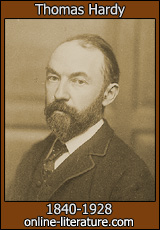 The Troy Waterfront Farmers Market is one of the finest farmers markets I have ever seen, and the first time I had gone was last weekend. This is November. It was inside and it still had at least thirty vendors peddling vegetables, meat, fruit, dairy products, yarn, soaps, breads, wines, and who knows what else I missed. It is held in the Uncle Sam Atrium on Third and Fourth Streets in Troy, New York, and it is a fabulous experience that you should participate in should you get the chance. It meets every Saturday from 10 to 2.
The Troy Waterfront Farmers Market is one of the finest farmers markets I have ever seen, and the first time I had gone was last weekend. This is November. It was inside and it still had at least thirty vendors peddling vegetables, meat, fruit, dairy products, yarn, soaps, breads, wines, and who knows what else I missed. It is held in the Uncle Sam Atrium on Third and Fourth Streets in Troy, New York, and it is a fabulous experience that you should participate in should you get the chance. It meets every Saturday from 10 to 2.It may seem odd that I bring this Farmers Market up when it seems like it has little to do with TA'ing or teaching English. Well, it is not odd. It does have a purpose. One of the state ELA standards is concerned with students ability to read, write, listen, and speak for social interaction. Another states that, "students will read, write, listen, and speak for information and understanding."
In class today, we talked about an "extra credit" project as well as the final exam. The extra credit project will revolve around the Farmers Market. Students are being asked to attend in one of two groups, the first attending at 11 with The Professor, the other attending at 1 with myself. We are asking students to talk to the farmers and even other patrons. Yes, it is college, but the state standards are still something of importance, and we are covering them with out even trying. On top of this, we are encouraging a college community to integrate with the local community. As this was not a goal of my undergraduate university of study (that I spoke to the former Dean of Students about) - St. Lawrence University - it is something that I feel is deeply important to fostering a higher-learning community.
In regards to the final exam, students will be writing an essay concerning the article from Harper's that I found and shared with The Professor the other day, and another author - probably one we read previously in class. I helped create the final with out even intending to do so. Hooray for collaboration of a sort.
 The other day I
The other day I  With that said, I will get back to the first few lines I spewed forth.
With that said, I will get back to the first few lines I spewed forth.  The students third rough draft is coming up; it's due the Monday after Thanksgiving Break. The due date was supposed to be the Monday before break, but things got
The students third rough draft is coming up; it's due the Monday after Thanksgiving Break. The due date was supposed to be the Monday before break, but things got 
 letting my brain turn to mush. That was not what I ended up doing. I met with The Professor Friday afternoon to discuss a class that I will be taking with her independently, and as the discussion wound down we decided to go get some coffee and grade the students' third reflection paper. We each had ten, and she finished a bit before me, but had other work to do so I wasn't left alone. It took me three hours or so to grade them. This may seem like a long time to grade ten papers of two pages in length - and it probably is - but I'm getting better. Earlier in the semester it would have taken me much longer, and this time I did it in one sitting.
letting my brain turn to mush. That was not what I ended up doing. I met with The Professor Friday afternoon to discuss a class that I will be taking with her independently, and as the discussion wound down we decided to go get some coffee and grade the students' third reflection paper. We each had ten, and she finished a bit before me, but had other work to do so I wasn't left alone. It took me three hours or so to grade them. This may seem like a long time to grade ten papers of two pages in length - and it probably is - but I'm getting better. Earlier in the semester it would have taken me much longer, and this time I did it in one sitting. The most common mistakes I saw surrounded the inclusion of quotes. Many students failed to properly introduce a quote and ended up with redundant statements that needed to be fixed. Others simply dropped the quote in the paper with out any sort of introduction, or synthesis of the quote. The Professor and I have discussed these issues before, and some of the students are getting it; others are not. Another huge problem with quotes was
The most common mistakes I saw surrounded the inclusion of quotes. Many students failed to properly introduce a quote and ended up with redundant statements that needed to be fixed. Others simply dropped the quote in the paper with out any sort of introduction, or synthesis of the quote. The Professor and I have discussed these issues before, and some of the students are getting it; others are not. Another huge problem with quotes was  I awoke this morning in my apartment and thought I was sleeping in a tent. I have no insulation in my ceiling, or my walls. It was cold. It was ten o'clock when my phone rang with The Professor on the other end explaining to me her battle with a sinus infection, and asking me to take the class on today. Her requests were simple:
I awoke this morning in my apartment and thought I was sleeping in a tent. I have no insulation in my ceiling, or my walls. It was cold. It was ten o'clock when my phone rang with The Professor on the other end explaining to me her battle with a sinus infection, and asking me to take the class on today. Her requests were simple:
 I will have a job next year, and not one beeping groceries. A real job where I teach secondary level students in English Language Arts. If I don't, then I might just have to go back to Asia. Perhaps Taiwan this time.
I will have a job next year, and not one beeping groceries. A real job where I teach secondary level students in English Language Arts. If I don't, then I might just have to go back to Asia. Perhaps Taiwan this time. The other day, the Professor was out and I had to begin students in on the third unit by showing them the video
The other day, the Professor was out and I had to begin students in on the third unit by showing them the video  junk into big piles for the town to come pick up?" I got some nods of agreement but mostly looks of confusion. "Well, my buddy goes around and picks up stuff that is getting thrown out and could be re-sellable, like bicycles, or gym equipment. He makes some decent money this way. It's gleaning."
junk into big piles for the town to come pick up?" I got some nods of agreement but mostly looks of confusion. "Well, my buddy goes around and picks up stuff that is getting thrown out and could be re-sellable, like bicycles, or gym equipment. He makes some decent money this way. It's gleaning."

